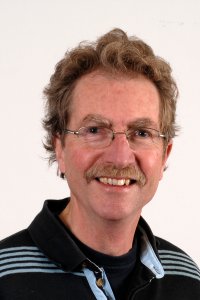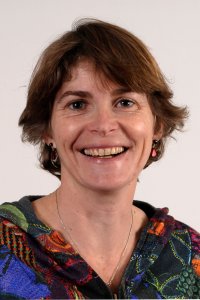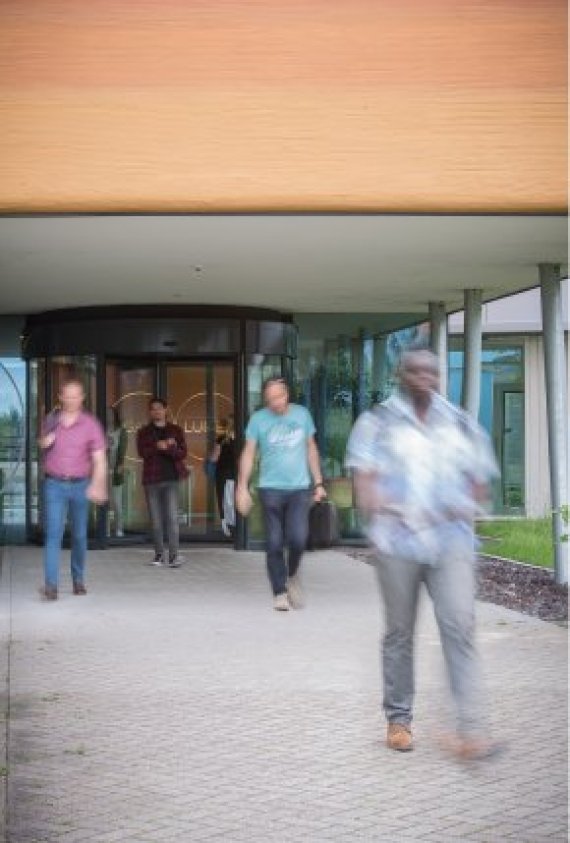Photo: Sven Menschel
Alterra staff expected cuts. ‘We have too few assignments, not enough work,’ says Tia Hermans. ‘Alterra is too big for the market,’ believes Mirjam Hack. ‘It has become harder to find projects,’ claims Cees Kwakernaak. ‘We’re going to have to face the music,’ says Marieke de Lange.
But they were surprised by the size of the shortfall last year: about four million euros. In the preceding years too, alarm bells rang regularly, but then the deficit at the end of the year was often less dramatic than expected, perhaps because a lot of bills were submitted to clients just before Christmas. But in 2015 there was no such last-minute reprieve. For a long time no one had a proper overview of revenue and expenditure, because of the transition to a new financial system. Then it became clear that financial problems had been piling up over recent years.
This has now been clearly stated by Bram Vos, the new director of the Environmental Sciences group (ESG), of which Alterra is part. And the staff appreciate that. De Vos, generally known as Bram, has a lot of credit. Having earned his laurels as head of the Soil Centre, and become director of Alterra in August last year, he is seen as ‘one of us’. Bram does not beat around the bush, he is open and honest, doesn’t put on a show and asks what you think. He is also admired for starting his clean-up at the top. A few financial managers who had failed to foresee the huge shortfall have been suspended. A gesture with which Bram makes clear that the whole organization is responsible.

Tia Hermans, researcher at Regional development and spatial use, and leader of the Nature and biodiversity domain.

Cees Kwakernaak, researcher at Climate change and adaptive land and water management.

Marieke de Lange, researcher at Animal Ecology and at Climate change and adaptive land and water management.

Mirjan Hack, senior researcher and project manager at Soil, water and land use.

Ivo Laros, senior assistant researcher at Animal Ecology.
Six research themes
But this does not solve Alterra’s problems because their causes are partly external. ‘Agriculture and horticulture have a top sector at the ministry of Economic Affairs, and we don’t,’ says Tia Hermams. ‘Spending on nature by Economic Affairs (EZ) has been halved in recent years, from 14 million euros in 2010 to 6 million in 2016. What is more, we more often involve partners in our research projects in order to deliver a good product to EZ. That acquisition and cooperation takes time, which costs money. And thirdly, for a lot of research grants you need co-funding. Then you have to contribute your own money, but we have hardly any scope for that anymore. Or you need to pool research budgets, but nowadays accountants often won’t approve that. All in all, this means we don’t have enough work.’
Alterra’s new strategy is addressing this, says Marieke de Lange. ‘It is good that the management is making decisions. We are now concentrating on six research themes, links to the national science agenda and other priorities in the outside world. We no longer do any project that comes our way, and only accept unprofitable projects if they are important for our own knowledge development and if they are compensated for with projects with a big enough margin. I think that’s a good strategy. The only question is: how are we going to implement it?’
According to Hermans the problem is the lack of a convincing narrative ‘for drawing attention to the urgency of our field.’ ‘The message that our food production is supported by biodiversity and ecology is not getting across strongly. I don’t hear the executive board proclaiming that biodiversity and nature lie at the root of a resilient food production system. Professor Herbert puts a motto at the bottom of his emails: “No nature, no life.” That’s what we’ve got to get across, otherwise we’ll be gone.’
Not enough teamwork
De Lange sees another internal problem. ‘In order to implement the new strategy the culture at Alterra needs to change. Crucial to that culture change are a better division of labour and more collaboration. At the moment, Alterra is too much like a collective of 400 freelancers under one roof. All the staff are assessed by the number of billable hours they work, not by their overall result. The thing is that Alterra’s expertise and added value is all in the heads of the staff: you can’t see it. That’s got to change. We should know what our colleagues are doing, otherwise we can’t set up anything together.’
More collaboration is crucial to the culture change
Molecular ecologist Ivo Laros agrees that Alterra is ‘400 individual firms that have to meet their targets’, and believes staff must work more as a team. That is a requirement for acquiring new projects, say other staff members too. The time has passed when Alterra ecologists were hired to take their binoculars and go out and inventorize species. Freelancers from outside Alterra can do that too, and much more cheaply. Alterra’s added value lies in larger multidisciplinary projects. And for those you need teams.
So part of the culture change that is needed is for the target culture to disappear. And that’s no easy matter, because it is precisely when an organization is running at a loss that controllers focus on who is not working enough billable hours. Discussions with staff who don’t acquire enough projects will be intensified. And that raises questions for Mirjam Hack. ‘The management has not opted for a reorganization. The alternative is to manipulate people into leaving. That bothers me.’ If you want staff to work together and more on a trust basis, you mustn’t create the impression that they could be bullied into leaving, as has happened in the past. What you want is a transparent procedure such as the ‘from job to job’ trajectory agreed on in the latest labour agreement (CAO). That procedure is not being used at the moment, notes Hack. ‘And that can lead to arbitrariness.’
Victims
‘People are worried, especially the staff with low productivity and people involved in a change process,’ says Laros. Hermans: ‘Everyone understands that something’s got to happen, but that understanding disappears once you are affected personally. I try to avoid thinking about that, because I don’t want to be paralysed.’ Cees Kwakernaak is due to retire on 15 August. The recovery plan won’t affect him personally but he does say: ‘The temporary contracts are always the first victims. And that’s a great pity because that’s where the action is.’
Is there a future for Alterra? There are doubts about that, because the institute has actually been shrinking continuously for the last ten years. The research questions will still exist, think the staff, but the institute? In a slimmed-down form, says Hermans. De Lange: ‘Only if the ecosystem gives Alterra enough positive feedback in the form of mutual interaction and trust.’

